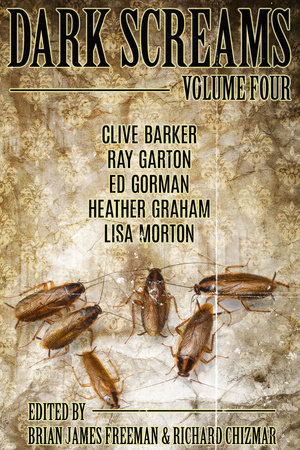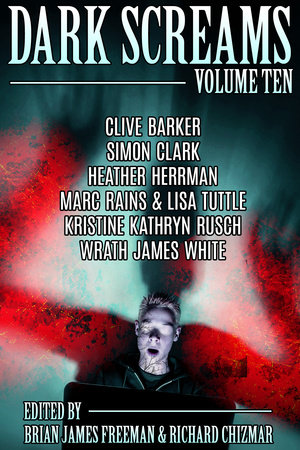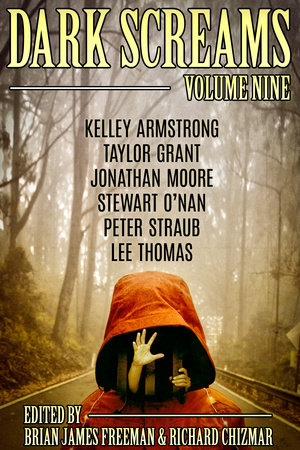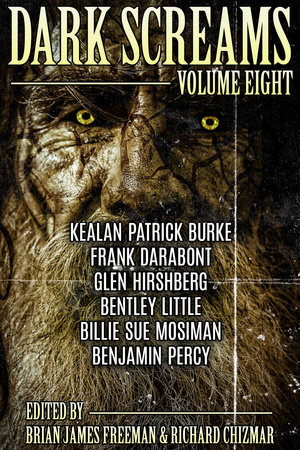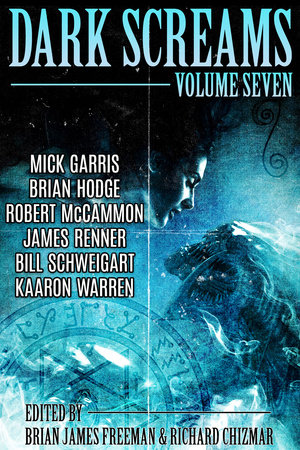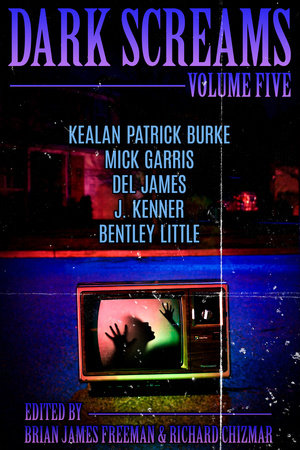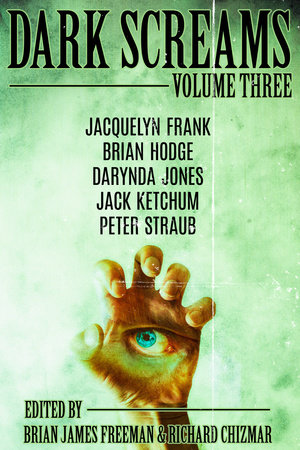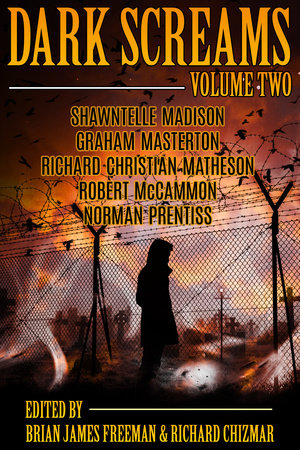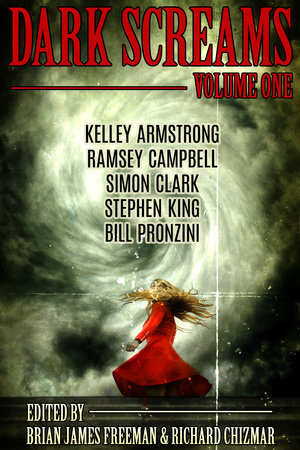Excerpt
Dark Screams: Volume Four
The Departed
Clive Barker
It was not only painters who were connoisseurs of light, Hermione had come to learn in the three days since her death; so, too, were those obliged to shun it. She was a member of that fretful clan now—a phantom in the world of flesh—and if she hoped to linger here for long she would have to avoid the sun’s gift as scrupulously as a celibate avoided sin, and for much the same reason. It tainted, corrupted, and finally drove the soul into the embrace of extinction.
She wasn’t so unhappy to be dead; life had been no bowl of cherries. She had failed at love, failed at marriage, failed at friendship, failed at motherhood. That last stung the sharpest. If she could have plunged back into life to change one thing, she would have left the broken romances in pieces and gone to her six-year-old son, Finn, to say: Trust your dreams, and take the world lightly, for it means nothing, even in the losing. She had shared these ruminations with one person only. His name was Rice, an ethereal nomad like herself who had died wasted and crazed from the plague but was now in death returned to corpulence and wit. Together they had spent that third day behind the blinds of his shunned apartment, listening to the babble of the street and exchanging tidbits. Toward evening, conversation turned to the subject of light.
“I don’t see why the sun hurts us and the moon doesn’t,” Hermione reasoned. “The moon’s reflected sunlight, isn’t it?”
“Don’t be so logical,” Rice replied, “or so damn serious.”
“And the stars are little suns. Why doesn’t starlight hurt us?”
“I never liked looking at the stars,” Rice replied. “They always made me feel lonely. Especially toward the end. I’d look up and see all that empty immensity and . . .” He caught himself in mid-sentence. “Damn you, woman, listen to me! We’re going to have to get out of here and party.”
She drifted to the window.
“Down there?” she said.
“Down there.”
“Will they see us?”
“Not if we go naked.”
She glanced around at him. He was starting to unbutton his shirt.
“I can see you perfectly well,” she told him.
“But you’re dead, darling. The living have a lot more trouble.” He tugged off his shirt and joined her at the window. “Shall we dare the dusk?” he asked her, and without waiting for a reply, raised the blind. There was just enough power in the light to give them both a pleasant buzz.
“I could get addicted to this,” Hermione said, taking off her dress and letting the remnants of the day graze her breasts and belly.
“Now you’re talking,” said Rice. “Shall we take the air?”
All Hallows’ Eve was a day away, a night away, and every shop along Main Street carried some sign of the season. A flight of paper witches here; a cardboard skeleton there.
“Contemptible,” Rice remarked, as they passed a nest of rubber bats. “We should protest.”
“It’s just a little fun,” Hermione said.
“It’s our holiday, darling. The Feast of the Dead. I feel like . . . like Jesus at a Sunday sermon. How dare they simplify me this way?” He slammed his phantom fists against the glass. It shook, and the remote din of his blow reached the ears of a passing family, all of whom looked toward the rattling window, saw nothing, and—trusting their eyes—moved on down the street.
Hermione gazed after them.
“I want to go and see Finn,” she said.
“Not wise,” Rice replied.
“Screw wise,” she said. “I want to see him.”
Rice already knew better than to attempt persuasion, so up the hill they went, toward her sister Elaine’s house, where she assumed the boy had lodged since her passing.
“There’s something you should know,” Rice said, as they climbed. “About being dead.”
“Go on.”
“It’s difficult to explain. But it’s no accident we feel safe under the moon. We’re like the moon. Reflecting the light of something living, something that loves us. Does that make any sense?”
“Not much.”
“Then it’s probably the truth.”
She stopped her ascent and turned to him. “Is this meant as a warning of some kind?” she asked.
“Would it matter if it were?”
“Not much.”
He grinned. “I was the same. A warning was always an invitation.”
“End of discussion?”
“End of discussion.”
There were lamps burning in every room of Elaine’s house, as if to keep the night and all it concealed at bay.
How sad, Hermione thought, to live in fear of shadows. But then, didn’t the day now hold as many terrors for her as night did for Elaine? Finally, it seemed, after thirty-one years of troubled sisterhood, the mirrors they had always held up to each other—fogged until this moment—were clear. Regret touched her, that she had not better known this lonely woman whom she had so resented for her lack of empathy.
“Stay here,” she told Rice. “I want to see them on my own.”
Rice shook his head. “I’m not missing this,” he replied, and followed her up the path, then across the lawn toward the dining room window.
From inside came not two voices but three: a woman, a boy, and a man whose timbre was so recognizable it stopped Hermione in her invisible tracks.
“Thomas,” she said.
“Your ex?” Rice murmured.
She nodded. “I hadn’t expected . . .”
“You’d have preferred him not to come and mourn you?”
“That doesn’t sound like mourning to me,” she replied. Nor did it. The closer to the window they trod, the more merriment they heard. Thomas was cracking jokes, and Finn and Elaine were lapping up his performance.
“He’s such a clown!” Hermione said. “Just listen to him.”
They had reached the sill now, and peered in. It was worse than she’d expected. Thom had Finn on his knee, his arms wrapped around the child. He was whispering something in the boy’s ear, and as he did so a grin appeared on Finn’s face.


